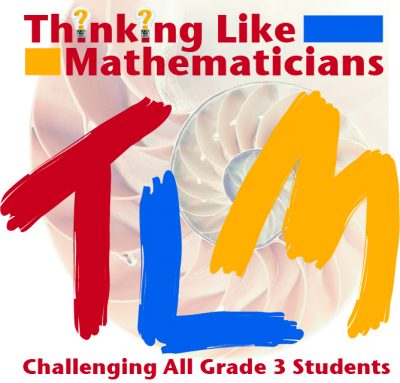
Contact Us
Thinking Like Mathematicians: Challenging All Grade 3 Students
University of Connecticut
2131 Hillside Road, Unit 3007
Storrs, CT 06269-3007
Tel: 860-486-4676
Fax: 860-486-2900
Located in Tasker Building
Thinking Like Mathematicians: Challenging All Grade 3 Students is a scale up of promising evidence-based quantitative and qualitative mathematics studies, identification and programming studies, and a qualitative study of identification practices for English learners, which were all funded by the Javits Gifted and Talented Students Education Act. These prior studies emphasized the importance of supporting and enhancing obvious and emergent talents of students from historically underrepresented groups (e.g., students who are from culturally, linguistically, and economically diverse communities or who are twice-exceptional [i.e., 2e: intellectual gifts and special needs]). This multisite randomized control trial project in 40-50 classrooms and 1,000-1,250 students in the Northeast will continue this precedent. It is designed to yield additional data on the efficacy of using pre-differentiated (i.e., tiered lessons) and enriched, challenging, and engaging curriculum, based on Common Core State Standards and 21st Century Skills (4Cs: Communication, Collaboration, Critical Thinking, Creativity), to enhance the learning of all students in general education classrooms. It also will serve as a potential developmental identification strategy capitalizing on teachers’ observations of students’ performance and their reflections on students’ mathematical skills and understandings.
Year 1 (2017-2018) tasks include the following:
- recruit teachers from states other than Connecticut to participate in pilot testing of draft mathematics lessons;
- pilot-test 16 draft mathematics lessons on algebraic thinking, multiplication, and division, which will be aligned with Common Core State Standards and 21st Century Skills (4Cs: Communication, Collaboration, Critical Thinking, Creativity);
- assess the organization, quality, and effectiveness of curricular materials; and
- develop a survey about teachers’ beliefs about twice-exceptional students.
In Year 2 (2018-2019) and Year 3 (2019-2020), we would like to work with 40-50 Connecticut grade 3 teachers in general education classrooms. Of these 40 general education classrooms, 20-25 teachers will be randomly assigned to implement the 5-week, revised mathematics curriculum, and 20-25 will continue with the district’s mathematics curriculum, as designed.
In Year 4 (2020-2021), we will work with teachers from treatment and control groups and teachers from non-profit private schools and provide professional development on creating new pre-differentiated and enriched mathematics lessons. The new practitioner-developed mathematics lessons will be reviewed by content area experts.
Finally, in Year 5 (2021-2022), we will focus on analyzing all data from the field tests of the mathematics unit, finalize the practitioner-developed mathematics lessons, and disseminate the results to administrators and teachers across the country.
Funded by the Jacob K. Javits Gifted and Talented Students Education Program, U.S. Department of Education PR/Award # S206A170023